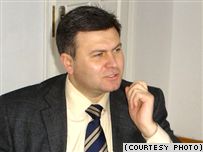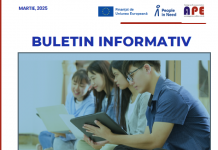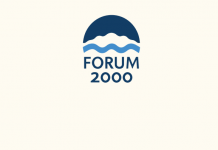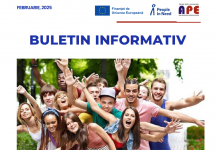On June 5, 2010, German Chancellor Angela Merkel and Russias President Dmitry Medvedev signed the Russian-German Memorandum of Meseberg, under which the EU and Russia are to create a joint Foreign Policy and Security Committee at the level of ministers, with the Transnistrian conflict to become a major subject in the Councils agenda. It will be soon a year of this date, but the committee has not been yet set up. Moscow considers that the ball is in the court of Brussels, which should respond to the proposals submitted by it last summer, concerning the work of the committee proposed by Merkel and Medvedev in Meseberg.
Brussels yet keeps silent, probably not without reason. For the time being, the 27 EU member states do not have a common position on the German-Russian initiative. However, the European officials consider that the settlement of the Transnistrian dispute is a seriousness and sincerity test for Russian in the European security policy. It seems that Moscow has another opinion. At least, this was suggested by the Russian Foreign Minister Sergey Lavrov in a news conference on January 13, this year, when he said that a real and more important sincerity test, to his mind, was the ability to create a joint European anti-rocket shield between Russia and NATO. Paradoxically or not, while Brussels expects that Moscow will accept to deal with the Transnistrian issue, the perpetuation of the conflict on the Nistru River becomes a test of the EUs capacity to assert itself as a powerful political player that is heard, listened and respected at the negotiations table.
It is true that during the last six years, the EU became much more visible in the Transnistrian region. This fact was mainly due to the EUs political will to become directly involved in the Transnistrian conflict settlement talks and assume responsibilities in different areas, including:
-to strengthen and make the control at the Moldovan-Ukrainian border, on the Transnistrian segment, more efficient by establishing the EUBAM Mission;
-to promote the measures aimed at building confidence between Chisinau and Tiraspol, by implementing humanitarian, social and infrastructure-related projects financed by the EU in the Transnistrian region;
-to participate as observer in the consultations and talks in the 5+2 format.
Being a visible player does not mean that you are automatically an influential political actor. The EUs shortcoming in the Transnistrian region and in the 5+2 format talks is that Brussels has not yet managed to transform its increasing presence into real influence instruments and instruments for exerting its normative, economic and political power on the population, businesses and the political regime in Tiraspol. Despite the fact that Tiraspol has been lately visited by many European diplomats and officials, the EU, as a political power, is hardly heard, not much listened to and premeditatedly ignored in the Transnistrian region.
Can the EU deal with this situation? Certainly, yes. But, in order to succeed, the EU must have real instruments of influence that would allow it to more determinedly promote its principles, values and legitimate interests in Transnistria. We consider that this is practically impossible as long as the EU avoids to:
1.assume and exercise a role equivalent to Russias role in the Transnistrian conflict settlement talks;
2.clearly formulate its own view on how the Transnistrian conflict can be solved, which would be supported by most of the EU member states, not only Germany and France;
3.work out and propose a common assistance package for modernizing the Transnistrian region, which would be at least equal to the assistance provided by Russia to the region. Surely, such a package of assistance would be provided in exchange for steps taken to democratize and demilitarize the region, promote the dialogue and cooperation between Tiraspol and Chisinau at all the levels, remove all the obstacles hindering the movement of persons and goods between the banks of the Nistru, implement join infrastructure- related projects, between Tiraspol and Chisinau;
4.firmly apply mechanisms for encouraging and convincing the Tiraspol administration when need be.
Is the EU ready to act like this? Is the EU prepared to assume a role in the Transnistrian conflict settlement talks that would be in accordance with its regional and international status și a role equivalent to that played by Russia? Unfortunately, the reality shows that the EU hesitates. Consequently, the consultations and talks in the 5+2 format depend almost exclusively on Tiraspols moods and Moscows will/readiness to exert pressure on the intransigent Transnistrian leaders”. Though the EU is in favor of unconditionally opening the talks on the future status of the Transnistrian region, its position is completely ignored by the Tiraspol administration. Moreover, the informal consultations in the 5+2 format are transformed by the Transnistrian leaders into important concessions by Chisinau, which is to ensure the equality of rights (ravnopravie storon) that is perceived by Tiraspol and Moscow as recognition of the Transnistrian region as entity with the same rights as Moldova. As long as, there are no efficient instruments for influencing the Transnistrian leaders, the EU is forced to rely on Moscows capacity to persuade these leaders to negotiate.
At the same time, while the EU is focused on the opening of the official talks in the 5+2 format as soon as possible, it avoids getting actively involved in other dimensions of the Transnistrian dispute, like democratization of the region and ensuring of transparency in the Security Zone, which was created under the Moldovan-Russian agreement on the principles of peacefully resolving the armed conflict in the Transnistrian region of Moldova”, signed in Moscow on July 21, 1992. The developments in these areas may hinder the efforts aimed at building confidence and the political dialogue and future talks between Chisinau and Tiraspol. Does Brussels see these negative trends? Yes, it sees them, but follows them powerlessly in accordance with its observer status. In fact, it is time to say openly that the observer status became a disadvantage for the EU, a trap that limits its level of involvement and influence in the Transnistrian region.
Victor Chirila, executive director of the Foreign Policy Association, for Info-Prim Neo







